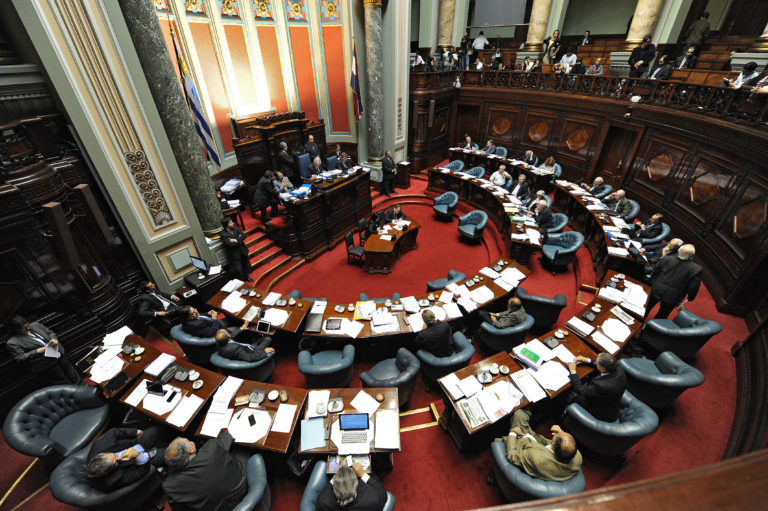(IAPA/IFEX) – The following is an 11 October 2002 IAPA press release: IAPA welcomes bill opening access to information in Uruguay, decries increased penalties under insult law in Nicaragua MIAMI, Florida (October 11, 2002) – The Inter American Press Association (IAPA) today welcomed the initial approval by the Uruguayan House of Representatives of a bill […]
(IAPA/IFEX) – The following is an 11 October 2002 IAPA press release:
IAPA welcomes bill opening access to information in Uruguay, decries increased penalties under insult law in Nicaragua
MIAMI, Florida (October 11, 2002) – The Inter American Press Association (IAPA) today welcomed the initial approval by the Uruguayan House of Representatives of a bill providing for access to public records. At the same time, the organization protested a proposal before the Congress in Nicaragua that would establish lengthy jail terms for those found guilty of insult.
The chairman of IAPA’s Committee on Freedom of the Press and Information, Rafael Molina, expressed the organization’s pleasure at the preliminary approval of the legislative bill on the right to public information and habeas data, passed in the Uruguayan lower house of Congress on October 8. The law would allow citizens free access to all government documents and the right to receive and distribute such information.
“We are pleased to see the progress made in the area of freedom of expression represented by this measure providing for government transparency in a democratic society. We trust that the initiative will be upheld in the Uruguayan Senate and that the appropriate enabling legislation will be drawn up so that the public’s right to information can be upheld in an effective manner,” Molina said.
Referring to Nicaragua, Molina, editor of the Santo Domingo, Dominican Republic news weekly Ahora, said that the bill before the Central American country’s Legislative Assembly seeking to increase penalties for the offense of insult contained in the Penal Code “puts at risk the right of citizens to freely express their views on the conduct of government officials and amounts to a dangerous curtailment of freedom of expression.”
The Nicaraguan bill aims to increase the penalty for offending government agencies or the president to five years of imprisonment. Article 348 of the Penal Code currently provides for imprisonment of six months to four years.
Insult laws have been repealed in Argentina, Costa Rica and Paraguay.
Molina quoted the IAPA-sponsored Declaration of Chapultepec, a document drafted in 1994 setting out 10 principles for free speech and press freedom, by noting that “no media outlet or journalist should be punished for publishing the truth, or criticizing or denouncing the government.”


